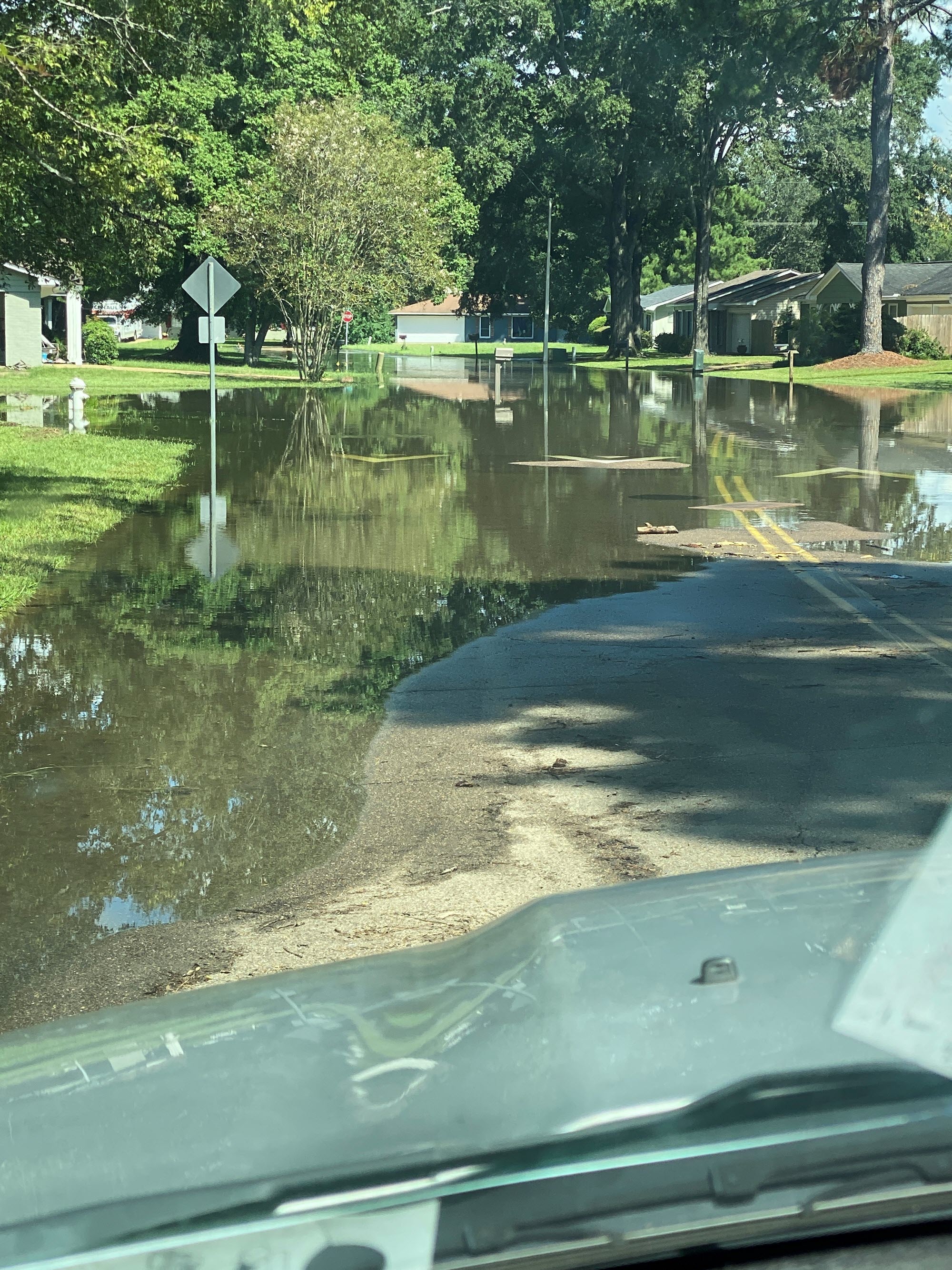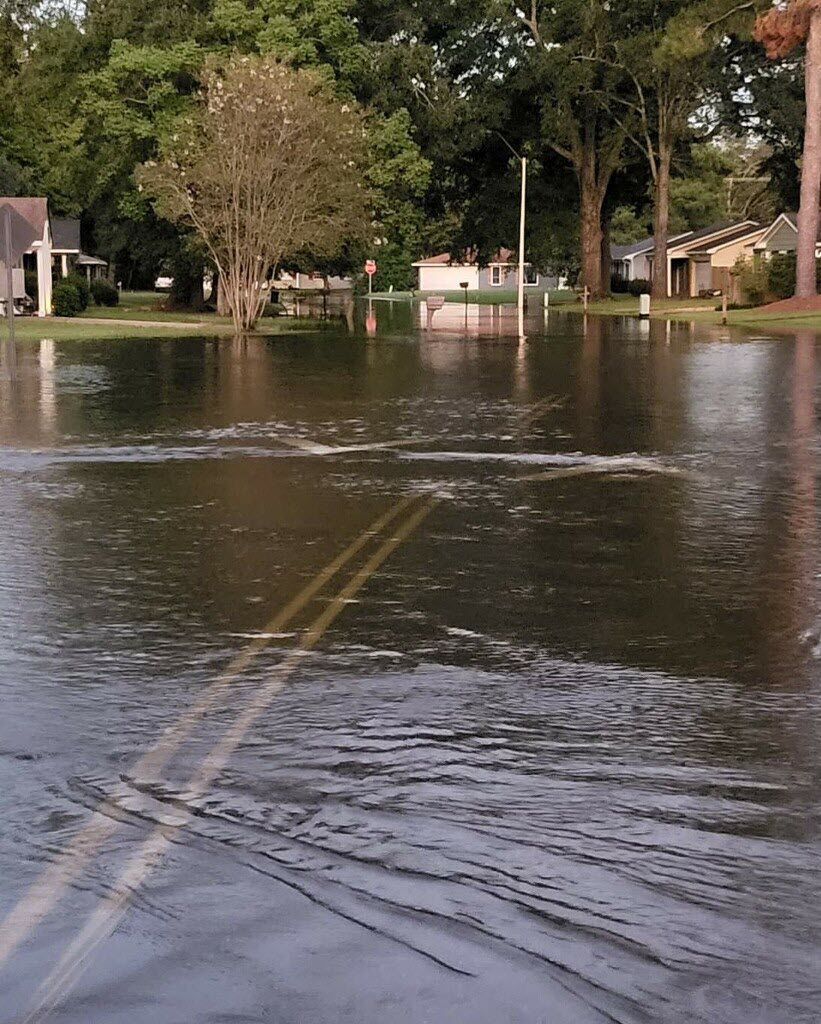 Shawn Miller
Shawn Miller Perhaps the most surprising thing is the lack of surprise.
Thousands of residents of Jackson, Mississippi, went days without safe drinking water following last week’s excessive rainfall that flooded the Pearl River and caused pumps to fail at a nearby water treatment plant.
And while this week began with reports of improved water pressure – “All of Jackson should have pressure and most are now experiencing normal pressure,” read an update on the City of Jackson website, Sept. 6 – there seems to be a “when, not if” feeling about a next potential water outage.
The 2020 ASCE Report Card for Mississippi’s Infrastructure graded the state’s infrastructure a D-plus, with drinking water in the city’s water infrastructure earning a D.
“Much of the state’s current drinking water infrastructure is beyond or nearing the end of its design life, with older systems losing as much as 30-50% of their treated water to leaks and breaks,” according to the report. “Adequate funding and prioritization of drinking water infrastructure improvements are needed to ensure Mississippians continue to enjoy quality drinking water for years to come.”
Two years later, following last week’s crisis in Jackson, ASCE issued a statement from President Dennis Truax: “All of the utilities in Mississippi are doing what they can to protect the citizens they serve. However, with very limited resources, these systems have become increasingly susceptible to water main breaks, treatment facility problems, and other infrastructure failures.”
Civil Engineering Source recently talked to ASCE leaders in Jackson – Sarah McEwen, P.E., M.ASCE, a water resources manager for AECOM in Jackson and former president of the ASCE Jackson Branch, and Shaun Miller, A.M.ASCE, president of the ASCE student chapter at Jackson State University, about last week’s crisis and the ongoing water challenges in the city.
Sarah McEwen, P.E., M.ASCE
Source: I gather that this isn’t an issue that just started this week?
McEwen: Correct. I’ve worked in Jackson for a little over nine years, and throughout that entire time, there have been off-and-on “boil water” notices. As a new mom and as someone who worked downtown while pregnant, it is concerning, but it’s nothing new. And our students are gravely impacted when there are disruptions to normal everyday life, and you don’t have a reliable source of clean water.
Source: What does a “boil water” notice entail?
McEwen: It typically means that something has happened in the water line or the water treatment process that requires or recommends out of caution for you to boil your water to ensure that any bacteria or things like that are taken care of before consumption or being used for food preparation.
Source: Is it almost kind of an accepted way of life? What’s the mindset there?
McEwen: You almost go in assuming you can’t drink the water. When you go to a restaurant, you ask, “Can we have bottled water?” or “Where did this water come from?”
What happened this week was a little different in that it wasn’t just a “boil water” notice, it was a major loss of pressure in the system. So, a lot of the buildings downtown and around didn’t have the pressure to maintain water to their upper floors or to their HVAC units. In my office building, we intermittently lost pressure so we couldn’t flush or wash our hands or have AC, which in the middle of the summer is not ideal. …
Residential neighborhoods, too, and schools. I know that the schools had to go virtual in cases when they didn’t have enough water for preparing food for kids or had enough capacity for flushing the toilets. You can’t have that volume of people anywhere and not have enough water pressure to maintain your sanitary systems. …
I would say that the biggest heartache for me is you’re telling families again and again and again to boil their water or you’re saying that you need to use bottled water that’s such a short-term band aid to this problem, and it’s not really manageable. I just worry about what the long-term health impacts are of people saying, “You know, I’m tired, I’m just going to risk it,” and then drinking this water. What are the long-term impacts of this virtual environment that kids are constantly getting thrown into and the instability of that in our school system? That really concerns me.
 Shawn Miller
Shawn Miller Shawn Miller, A.M.ASCE
Source: Can you describe what happened this week and what you’re dealing with?
Miller: I think it was Saturday (Aug. 27) we started to see water on the roads. It became mandatory to evacuate our homes. We got through that crisis. Even though we had to evacuate, water didn’t get into my house. But right after the evacuation, we got word from our governor, Tate Reeves, that Jackson was unable to provide clean water.
Source: You evacuate and get back into your house, but you don’t have water. How many days has it been?
Miller: My water pressure just came back yesterday (Sept. 1). Currently, the water’s still not drinkable. They cautioned against even using the water for bathing.
Source: It’s such a fundamental part of daily life. What do you do?
Miller: For me, I try to be positive and optimistic about the situation. Even with the level of frustration that I have, you just try to do a workaround. You try to make sure your water’s clean; you boil your water for baths. It’s at a level where you have to make sure you don’t take a shower every morning, you lose that. I try to remain positive and hope that we get through the situation.
Source: From a civil engineering perspective, you study this. This is what you’re going into career-wise. So how does that help you see the situation?
Miller: That’s why I’m trying to be understanding. I just want the communication to be clear because I’ve got neighbors who are upset. A lot of people just don’t know what’s going on.
I understand the water management, trying to release water a little as you go, and try not to hit that automatic mechanism. I try to help explain it to the community. Where we live, where it just flooded, it’s a tight-knit community, almost like family. So I’m trying to help get the word out. These are problems that were created 60 years ago. And they weren’t addressed then, and they’ve just gotten worse over time.
Source: Is there something that can be done so those problems from 60 years ago can finally be addressed?
Miller: Yes. The part of the neighborhood we stay in probably never should’ve been built.
If you really want to fix the problem, the city and state get together, buy back the land, and take it off the FEMA flood map. They pay the people not to rebuild and then use that land for retention to shore up the Pearl River, and you would never have that problem again.
Source: That’s your home. It’s got to be tough talking about that being the solution, stripping away those memories.
Miller: Most definitely. But one thing about being a leader is you have to make decisions that are uncomfortable. You have to. If I’d have known that we were so prone to flooding, I’d have never moved there, because I believe in the science. But without that, you can’t shore up the Pearl River because there isn’t enough land.
You calculate your damage on the 100-year flood plain. But we’ve technically had four floods that happened within six years. … And I think it will probably happen again in the next five years.


